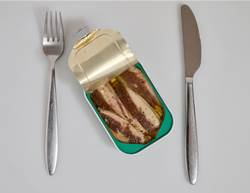Slow, subtle weight gain is common as we age, influenced by several factors including genetics, poor sleep, stress, and the loss of muscle mass that typically occurs with every decade.
“Most of us do tend to gain weight as we get older,” says Dr Lawrence Cheskin, coauthor of Weight Loss for Life: The Proven Plan for Success. “But forget about how much you weighed years ago. The question is, what’s a reasonable weight for you now?”
In fact, weight doesn’t tell the whole story of your health. There’s also the percentage of fat, bone, and muscle in your body. “What’s important is to maintain muscle and bone mass,” says Dr Nikhil Dhurandhar, professor of nutritional sciences. And, he adds, if you need to shed pounds for your health, focus on fat loss, not weight loss.
Where excess fatty tissue is distributed also matters, says Dr Cheskin. Fat around your middle is riskier: visceral fat, which surrounds organs such as the kidneys and the spleen, produces chemicals that damage blood vessels, influence blood sugar levels, and increase the risk of conditions such as diabetes and cardiovascular disease. If you store fat around your belly, it’s particularly important to maintain a healthy weight.
Setting the right health goals
Healthy bodies come in different sizes, so you and your doctor should discuss your objectives. “If you’re dealing with rising blood sugar or blood pressure, these things are fixable,” says Dr Cheskin. For instance, you don’t have to fit into the pants you wore before you had kids, but you can discuss what amount of weight loss would help you achieve your goal of lowering your blood pressure.
Be proactive. “Maybe you don’t have any health complications now. But for people who are overweight, there’s a higher risk of developing metabolic problems such as diabetes or high cholesterol and biomechanical issues such as joint pain,” says obesity specialist Dr Eduardo Grunvald. “We want to reduce health risks so that prediabetes doesn’t become diabetes, for example.”
Sometimes health care providers use body mass index (BMI), a ratio of weight to height, to determine whether you should lose weight, but BMI is not an accurate gauge of overall health. If you would like to move away from BMI, you can ask your doctor to avoid weight conversations and use other markers, such as blood pressure and cholesterol, to evaluate your health risks.

Step 1: Track your health
To adopt better-for-you behaviours, figure out where you are right now.
Log your habits
Maybe you’re having large-portioned restaurant meals every week. Or perhaps you’re walking less than you think. Keeping a food and fitness journal can help you see what you’re actually doing versus what you believe you’re doing. It can be tedious work, but it raises your awareness of your choices, says Professor Cheskin.
Look in your medicine cabinet
Many medications, including some antidepressants, beta blockers for blood pressure, and pain relievers, can affect weight, says Dr Grunvald. If you and your doctor have gauged that your weight is unhealthy, ask about alternatives to meds that may cause weight gain or make it harder to lose weight.
Stop negative self-talk
The topic of weight is often loaded with self-judgement. Check those feelings at the door. “If you think you could do better, don’t moralise it – you’re not a bad person,” says psychologist Dr Charlotte Markey. “This belief that you can modify your body shape to be anything, especially as you age, is not realistic. The perspective should be: what health behaviours can I control?”

Step 2: Consider what’s on your plate
Obsessing over food can be harmful, but being mindful of what you eat and making healthy choices is essential for wellness in general as well as to avoid unwanted kilos.
Forget about magic-sounding diets
Diets that promise miraculous results may seem like a good way to jump-start weight loss, but they target our vulnerabilities and often tout claims with no scientific backing. “We want to believe in them for an easy fix. There is nothing wrong with expecting one, but there’s a lot of quackery,” says Dhurandhar.
It’s fine to follow a reasonable plan such as the DASH diet, which limits foods that are high in saturated fat and sodium, or the Mediterranean diet, which focuses on plant-based foods and limits red meat and sweets, says Dr Cheskin. But avoid any extreme diet, such as one that eliminates all refined carbs, because it’s not a long-term fix.
Start small
Everyone wants instant success, but you’ll set yourself up for failure if you’re too restrictive.
“The research is clear that drastic diets don’t work, as we don’t like to be deprived,” says Dr Markey.
A couple of small modifications are easier to stick with. So, instead of, say, cutting out all sugar and alcohol, decide to have dessert once a week, or perhaps enjoy only a weekend glass of wine.
Keep it effortless
You need to make it easy on yourself, says Dr Grunvald.
Put a bowl of fresh fruit on the table or counter so it’s in sight when you walk in feeling peckish, and keep wholemeal crackers and trail mix at the front of the pantry cupboard so you’ll grab those instead of Tim Tams. If you know you’ll down an entire bag of peanuts in one sitting, buy single servings instead.
Order groceries online to save time and avoid impulse purchases. Making these kinds of small modifications to less-healthy habits will make the changes easier to stick with.
Make meals special
Put a tablecloth on your kitchen table with a nice centrepiece or candle. Then, when you have a snack or a meal, sit down at the table (not your desk or coffee table!), stash your phone away, and give your food the attention it deserves
Listen to your body
One of the more challenging aspects of weight maintenance or loss is learning how to tune in to your body, says Professor Cheskin. Ask yourself these questions whenever you eat:
- Am I hungry?
- Is this the best choice?
- Do I need more, or do I just want more?
This isn’t about judgement; it’s about being honest with yourself to figure out what triggers eating if you’re not hungry. It could be boredom, anxiety or even just the fact that someone else is eating.

Step three: Think about how you’re moving
Regular exercise can help with everything from bone and joint health to blood pressure and blood sugar to your mental health.
Try new workouts
When it comes to exercise, “break out of all-or-nothing thinking and embrace a more experimental mindset,” says health coach Lee Jordan. “Maybe start running twice a week and see how it goes. Or try two days of weight-bearing exercises. Then reassess. The best exercise is the one you’ll do.”
Step up your step game
Walking is one of the best activities for all ages and fitness levels. “You don’t have to perspire to get benefits,” says Dhurandhar. “Weight-bearing activity, such as walking, maintains bone and muscle mass.”
Measure steps with a fitness tracker or a pedometer to stay mindful of how much total movement you’re getting. Or try fast-paced intervals, which can burn up to 20% more calories: choose an amount of time, a number of steps, a distance to travel, or even a part of a song to listen to – bust your butt until you finish the interval, then recover and repeat.
Find an outlet for stress
Stress can derail healthy behaviours by causing you to crave sweets or alcohol or avoid physical activity, says Professor Cheskin. It also interrupts your sleep. Find strategies that help you cope: take a walk outside, do something creative or cancel that obligation meet-up and stay in, take a bath, meditate or call a friend and rant.

Step 4: Practice good sleep habits
A growing body of research has shown that people who get too little sleep have a higher risk of weight gain and obesity. Sleep impacts hormones such as ghrelin, leptin, and cortisol, so you may feel hungrier and less full and be more likely to crave comforting foods when you’re tired, says Dr Cheskin. It’s also tougher to make sensible food choices when you’re exhausted and cranky.
How do you know if you’re getting enough zzzs? If you wake up to an alarm instead of spontaneously, if you’re sleepy when driving, or if you fall asleep when on the sofa watching TV, you probably need more sleep, Dr Somers says. Most adults need seven to nine hours per night. Try sticking to a bedtime routine and schedule, making your room dark and cool, and disconnecting from technology and bright lights at least an hour before bedtime.
The bottom line
Reframe your perspective and accept that bodies change with age. “There are changes, but we’re lucky if we get the opportunity to grow older. After the last few years, we’ve survived a lot. If you’re still here, you’ve already won. Be grateful for where you are,” says Markey.
Staying at a healthy weight is a lifelong journey and not every technique works for everyone, so choose what’s effective for you. By making small changes and becoming more mindful about eating, sleep, and stress management, it’s possible to outsmart significant weight gain.
“Even if you gain weight over the next couple of decades but you make every effort to change the trajectory [so you’re putting on less], that’s a victory,” says Dhurandhar.



.jpg&h=90&w=90&c=1&s=1)






